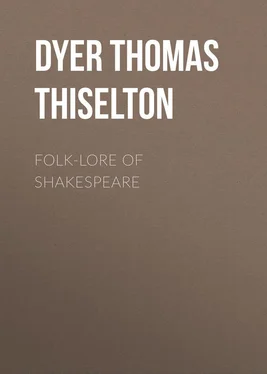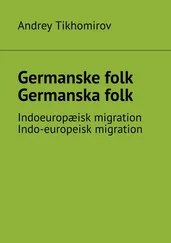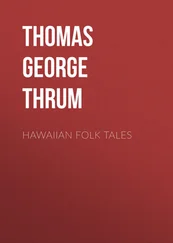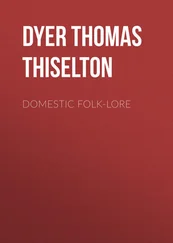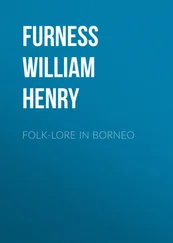Thomas Dyer - Folk-lore of Shakespeare
Здесь есть возможность читать онлайн «Thomas Dyer - Folk-lore of Shakespeare» — ознакомительный отрывок электронной книги совершенно бесплатно, а после прочтения отрывка купить полную версию. В некоторых случаях можно слушать аудио, скачать через торрент в формате fb2 и присутствует краткое содержание. Жанр: foreign_antique, foreign_prose, на английском языке. Описание произведения, (предисловие) а так же отзывы посетителей доступны на портале библиотеки ЛибКат.
- Название:Folk-lore of Shakespeare
- Автор:
- Жанр:
- Год:неизвестен
- ISBN:нет данных
- Рейтинг книги:4 / 5. Голосов: 1
-
Избранное:Добавить в избранное
- Отзывы:
-
Ваша оценка:
- 80
- 1
- 2
- 3
- 4
- 5
Folk-lore of Shakespeare: краткое содержание, описание и аннотация
Предлагаем к чтению аннотацию, описание, краткое содержание или предисловие (зависит от того, что написал сам автор книги «Folk-lore of Shakespeare»). Если вы не нашли необходимую информацию о книге — напишите в комментариях, мы постараемся отыскать её.
Folk-lore of Shakespeare — читать онлайн ознакомительный отрывок
Ниже представлен текст книги, разбитый по страницам. Система сохранения места последней прочитанной страницы, позволяет с удобством читать онлайн бесплатно книгу «Folk-lore of Shakespeare», без необходимости каждый раз заново искать на чём Вы остановились. Поставьте закладку, и сможете в любой момент перейти на страницу, на которой закончили чтение.
Интервал:
Закладка:
“‘Get you home, you merry lads,
Tell your mammies and your dads,
And all those that newes desire
How you saw a walking fire,
Wenches, that doe smile and lispe,
Use to call me willy-wispe.’”
Another allusion to this subject occurs in “The Tempest” (iv. 1), where Stephano, after Ariel has led him and his drunken companions through “tooth’d briers, sharp furzes, pricking goss and thorns,” and at last “left them i’ the filthy mantled pool,” reproaches Caliban in these words: “Monster, your fairy, which you say is a harmless fairy, has done little better than played the Jack with us” – that is, to quote Dr. Johnson’s explanation of this passage, “he has played Jack-with-a-lanthorn, has led us about like an ignis fatuus , by which travellers are decoyed into the mire.” 135 135 See Thoms’s “Notelets on Shakespeare,” p. 59.
Once more, when Puck, in “A Midsummer-Night’s Dream” (iii. 1), speaks of the various forms he assumes in order to “mislead night wanderers, laughing at their harm,” he says:
“Sometime a horse I’ll be, sometime a hound,
A hog, a headless bear, sometime a fire.”
Shakespeare, no doubt, here alludes to the will-o’-the wisp, an opinion shared by Mr. Joseph Ritson, 136 136 “Fairy Mythology,” edited by Hazlitt, 1875, p. 40.
who says: “This Puck, or Robin Goodfellow, seems likewise to be the illusory candle-holder, so fatal to travellers, and who is more usually called ‘Jack-a-lantern,’ 137 137 Among the many other names given to this appearance may be mentioned the following: “Will-a-wisp,” “Joan-in-the-wad,” “Jacket-a-wad,” “Peg-a-lantern,” “Elf-fire,” etc. A correspondent of “Notes and Queries” (5th series, vol. x. p. 499) says: “The wandering meteor of the moss or fell appears to have been personified as Jack, Gill, Joan, Will, or Robin, indifferently, according as the supposed spirit of the lamp seemed to the particular rustic mind to be a male or female apparition.” In Worcestershire it is called “Hob-and-his-lanthorn,” and “Hobany’s” or “Hobnedy’s Lanthorn.”
or ‘Will-with-a-wisp,’ and ‘Kit-with-the-candlestick.’” Milton, in “Paradise Lost” (book ix.), alludes to this deceptive gleam in the following lines:
“A wandering fire
Compact of unctuous vapour, which the night
Condenses, and the cold environs round,
Kindled through agitation to a flame,
Which oft, they say, some evil spirit attends,
Hovering and blazing with delusive light,
Misleads th’ amaz’d night-wanderer from his way
To bogs and mires, and oft through pond and pool.” 138 138 Mr. Ritson says that Milton “is frequently content to pilfer a happy expression from Shakespeare – on this occasion, ‘night-wanderer.’” He elsewhere calls it “the friar’s lantern.”
This appearance has given rise to a most extensive folk-lore, and is embodied in many of the fairy legends and superstitions of this and other countries. Thus, in Germany, Jack-o’-lanterns are said to be the souls of unbaptized children, that have no rest in the grave, and must hover between heaven and earth. In many places they are called land-measurers, and are seen like figures of fire, running to and fro with a red-hot measuring rod. These are said to be persons who have falsely sworn away land, or fraudulently measured it, or removed landmarks. 139 139 Thorpe, “Northern Mythology,” 1852, vol. iii. pp. 85, 158, 220.
In the neighborhood of Magdeburg, they are known as “Lüchtemannekens;” and to cause them to appear, it is sufficient to call out “Ninove, Ninove.” In the South Altmark they are termed “Dickepôten;” and if a person only prays as soon as he sees one, he draws it to him; if he curses, it retires. In some parts, too, a popular name is “Huckepôten,” and “Tuckbolde.” The Jack-o’-lanterns of Denmark 140 140 “Notelets on Shakespeare,” pp. 64, 65.
are the spirits of unrighteous men, who, by a false glimmer, seek to mislead the traveller, and to decoy him into bogs and moors. The best safeguard against them, when they appear, is to turn one’s cap inside out. A similar notion occurs in Devonshire with regard to the Pixies, who delight in leading astray such persons as they find abroad after nightfall; the only remedy to escape them being to turn some part of the dress. In Normandy these fires are called “Feux Follets,” and they are believed to be cruel spirits, whom it is dangerous to encounter. Among the superstitions which prevail in connection with them, two, says Mr. Thoms, 141 141 Ibid.
are deserving of notice: “One is, that the ignis fatuus is the spirit of some unhappy woman, who is destined to run en furolle , to expiate her intrigues with a minister of the church, and it is designated from that circumstance La Fourlore, or La Fourolle.” Another opinion is, that Le Feu Follet is the soul of a priest, who has been condemned thus to expiate his broken vows of perpetual chastity; and it is very probable that it is to some similar belief existing in this country, at the time when he wrote, that Milton alludes in “L’Allegro,” when he says:
“She was pinched and pulled, she said,
And he by Friar’s Lanthorn led.”
In Brittany the “Porte-brandon” appears in the form of a child bearing a torch, which he turns like a burning wheel; and with this, we are told, he sets fire to the villages, which are suddenly, sometimes in the middle of the night, wrapped in flames.
The appearance of meteors Shakespeare ranks among omens, as in “1 Henry IV.” (ii. 4), where Bardolph says: “My lord, do you see these meteors? do you behold these exhalations? What think you they portend?” And in “King John” (iii. 4), Pandulph speaks of meteors as “prodigies and signs.” The Welsh captain, in “Richard II.” (ii. 4), says:
“’Tis thought the king is dead; we will not stay.
The bay-trees in our country are all wither’d,
And meteors fright the fixed stars of heaven.”
Comet. From the earliest times comets have been superstitiously regarded, and ranked among omens. Thus Thucydides tells us that the Peloponnesian war was heralded by an abundance of earthquakes and comets; and Vergil, in speaking of the death of Cæsar, declares that at no other time did comets and other supernatural prodigies appear in greater numbers. It is probably to this latter event that Shakespeare alludes in “Julius Cæsar” (ii. 2), where he represents Calpurnia as saying:
“When beggars die, there are no comets seen;
The heavens themselves blaze forth the death of princes.”
Again, in “1 Henry VI.” (i. 1), the play opens with the following words, uttered by the Duke of Bedford:
“Hung be the heavens with black, yield day to night!
Comets, importing change of times and states,
Brandish your crystal tresses in the sky,
And with them scourge the bad revolting stars
That have consented unto Henry’s death!”
In “Taming of the Shrew” (iii. 2), too, Petruchio, when he makes his appearance on his wedding-day, says:
“Gentles, methinks you frown:
And wherefore gaze this goodly company,
As if they saw some wondrous monument,
Some comet, or unusual prodigy?”
In “1 Henry IV.” (iii. 2), the king, when telling his son how he had always avoided making himself “common-hackney’d in the eyes of men,” adds:
“By being seldom seen, I could not stir
But, like a comet, I was wonder’d at.”
Интервал:
Закладка:
Похожие книги на «Folk-lore of Shakespeare»
Представляем Вашему вниманию похожие книги на «Folk-lore of Shakespeare» списком для выбора. Мы отобрали схожую по названию и смыслу литературу в надежде предоставить читателям больше вариантов отыскать новые, интересные, ещё непрочитанные произведения.
Обсуждение, отзывы о книге «Folk-lore of Shakespeare» и просто собственные мнения читателей. Оставьте ваши комментарии, напишите, что Вы думаете о произведении, его смысле или главных героях. Укажите что конкретно понравилось, а что нет, и почему Вы так считаете.
